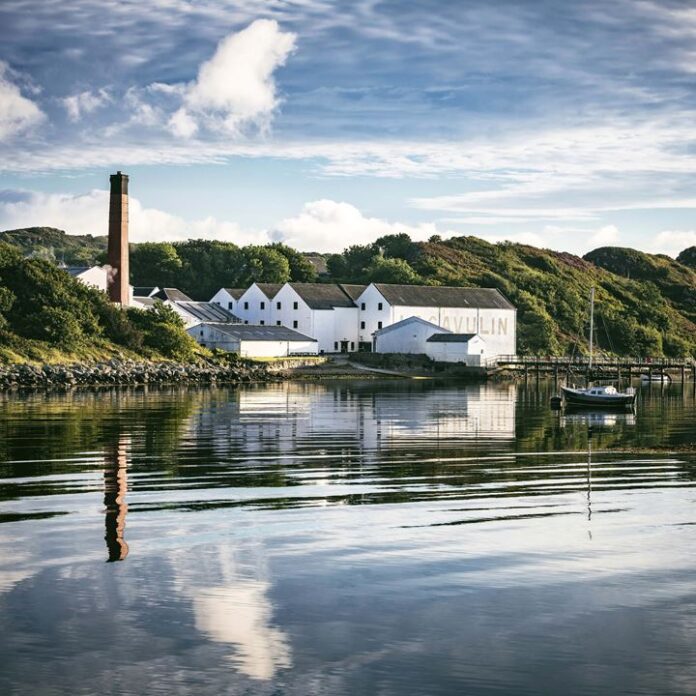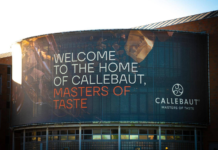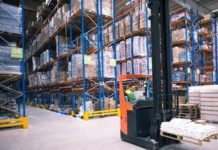Diageo, the maker of Johnnie Walker, Smirnoff, and Guinness, has celebrated the conclusion of its highly ambitious 2020 Sustainability and Responsibility Goals. Originally set in 2008, and refreshed in 2015, the goals were among the most ambitious and stretching in the industry, the company said in a press release. Diageo was among the first companies to set its greenhouse gas (GHG) reduction targets in line with the principles of the science-based targets initiative and an early adopter of absolute, rather than relative, GHG reduction targets.
On water stewardship, in 2019, Diageo was appointed a Global Goals Business Avenger as the business champion for UN Sustainable Development Goal 6 – “Ensure availability and sustainable management of water and sanitation for all”. This financial year, Diageo has replenished 1,400,000m3 of water, the equivalent of 560 Olympic sized swimming pools, in water-stressed areas.
Ewan Andrew, chief sustainability officer, said, “As we close our 2020 targets, we are incredibly proud of the progress we have made and grateful to our employees and selected partners who have helped us deliver transformational progress. Through our programs, we have made a positive impact on millions of people, in communities all around the world. We have been agile and moved quickly to adapt to the global changes around us. We are excited about the decade of action ahead and will continue to lead the way, driven by the knowledge that our future success is intertwined with the success of the living planet around us.”
Diageo’s focus areas for sustainability
The 2020 targets were selected to align with the UN’s Sustainable Development Goals and designed to cover Diageo’s three main focus areas – reducing environmental impact, building thriving communities, and promoting positive drinking.
The company’s targets include cutting greenhouse gas (GHG) emissions from direct operations by 509,000 metric tons and delivering its commitment to reduce absolute emissions by 50%. Reducing emissions by over a third (33.7%) across its entire value chain, going beyond its original 30% target. In water-stressed areas, replenished 100% of the water used in our final product. The company ensured that over 99.5% of its packaging is recyclable and achieved 45% recycled content in its packaging. It has achieved zero waste to landfill in all operational sites and offices and supported more than 250,000 people through its projects focused on clean water, sanitation, and hygiene (WASH) in 2020. Empowered 435,000 women to date through its community programs. Championed diversity such that 39% of leadership positions are now held by women, going beyond its original target of 35%.
According to the press release, Diageo has also long supported the World Health Organization’s goal of reducing harmful drinking by 10% across the world by 2025. It has set itself stretching targets to reach in this area over the next five years. So far, it has reached over 229 million people with moderation messages via its brands and helped educate 1 million young people, parents, and teachers about the dangers of underage drinking.
Despite this significant progress, however, Diageo has not quite achieved all its ambitious goals. However, Diageo delivered a 46.3% improvement in water use efficiency against a target of 50%, only missing the goal due to delayed water recycling projects in Africa and lower packaged volumes in some markets as a direct result of Covid-19 impacts. It has also found reducing the overall weight of its packaging by 15% more challenging than expected, still delivering 11% reduction with the starting point on lightweight glass making it a tough challenge.
IndiFoodBev — authentic, impactful and influential
An English-language food and beverage processing and packaging industry B2B platform in print and web, IndiFoodBev is in its third year of publication. It is said that the Indian food and beverage industries represent approximately US$ 900 billion in revenues which implies more than 20% of the country’s GDP. Eliminating the wastage on the farmside can help to deliver more protein to a higher number of the population apart from generating sizable exports. The savings in soil, seeds, water, fertilizer, energy and ultimately food and nutrition could be the most immense contribution that country is poised to make to the moderation of climate change.
To improve your marketing and grow sales to the food and beverage processing and packaging industry, talk to us. Our research and consulting company IppStar [www.ippstar.org] can assess your potential and addressable markets in light of the competition. We can discuss marketing, communication, and sales strategies for market entry and growth.
Suppliers and service providers with a strategy and budget for targeted marketing can discuss using our hybrid print, web, video, and social media channels to create brand recognition linked to market relevance. Our technical writers are ready to meet you and your customers for content.
The second largest producer of fruit and vegetables in the world is continuously expanding processing capacities and delivery systems with appropriate innovative technologies. We cover product and consumer trends, nutrition, processing, research, equipment and packaging from farm to thali. Get our 2025 media kit and recalibrate your role in this dynamic market. Enhance your visibility and relevance to existing markets and turn potential customers into conversations. Ask for a sample copy of our bi-monthly in print or our weekly IndiFoodBev eZine each Wednesday.
For editorial info@ippgroup.in — for advertisement ads1@ippgroup.in and for subscriptions subscription@ippgroup.in
Naresh Khanna – 10 February 2025
Subscribe Now












